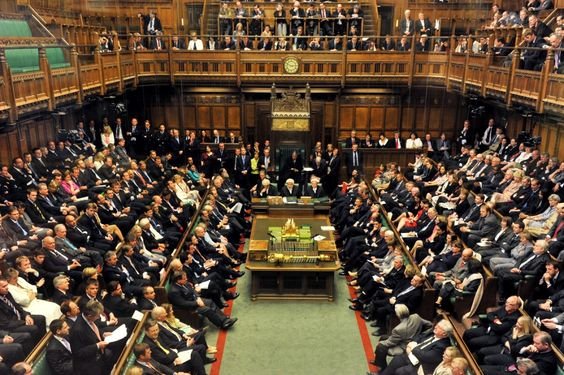
The United Kingdom Parliament is the supreme legislative body of the country and plays a central role in the governance of the nation. Its functions include making laws, scrutinizing the government, representing the public, and debating key issues. As a cornerstone of the UK’s democratic system, Parliament ensures that the government operates within the law and is accountable to the people. This article explores the structure, functions, and significance of the UK Parliament in modern governance.
1. Structure of the UK Parliament
The UK Parliament is bicameral, meaning it consists of two houses: the House of Commons and the House of Lords. Each house plays a distinct role in the legislative process and in holding the government to account.
The House of Commons is the primary legislative chamber, composed of Members of Parliament (MPs) who are elected by the public in general elections. Each MP represents a geographic constituency. The party or coalition with the majority of seats in the House of Commons forms the government, and the leader of that party becomes the Prime Minister. The House of Commons is responsible for initiating and passing most legislation, and it holds significant power in modern governance.
The House of Lords is the upper chamber of Parliament and is composed of appointed members, including life peers, bishops, and hereditary peers. Unlike the House of Commons, the House of Lords does not have elected members. Its role is to review and suggest amendments to legislation passed by the Commons, providing expertise and independent judgment. While the House of Lords can delay legislation and suggest changes, it cannot ultimately block bills passed by the House of Commons.
The UK Parliament also includes the Monarch, who plays a largely ceremonial role in modern governance. The Monarch’s duties include the formal opening of Parliament, giving Royal Assent to bills passed by both houses (a formality required for them to become law), and representing the nation in state functions. Although the Monarch’s powers are limited by the constitution, they remain a symbol of continuity and tradition in the UK’s political system.
2. Legislative Function
One of Parliament’s primary roles is to make and pass laws. This legislative process involves several stages, ensuring that proposed laws are thoroughly examined and debated.
Bills, which are proposals for new laws or changes to existing laws, can be introduced in either the House of Commons or the House of Lords. There are two main types of bills: Government Bills, introduced by government ministers, and Private Members’ Bills, introduced by MPs or Lords who are not part of the government. While most successful bills are government bills, private members’ bills can also become law.
The legislative process includes multiple stages:
– First Reading: The bill is introduced and its title is read out, but no debate occurs at this stage.
– Second Reading: The general principles of the bill are debated by the house.
– Committee Stage: The bill is examined in detail by a committee, which can suggest amendments.
– Report Stage: The bill is reviewed again, and further amendments can be made.
– Third Reading: The final version of the bill is debated, and a vote is taken.
– Consideration in the Other House: The bill is sent to the other house (Commons or Lords) for a similar process of review and amendment.
– Royal Assent: Once both houses agree on the final version, the bill is sent to the Monarch for Royal Assent, after which it becomes law.
This thorough process ensures that legislation is carefully considered and scrutinized, with opportunities for both houses to contribute.
3. Scrutiny and Oversight
Parliament plays a crucial role in scrutinizing the actions of the government, ensuring that it operates transparently and in the public interest.
One of the most visible forms of scrutiny is Prime Minister’s Question Time (PMQs), held weekly in the House of Commons. During PMQs, the Prime Minister answers questions from MPs, including the Leader of the Opposition, on a wide range of issues. Other ministers also face regular questioning in their respective areas, providing a platform for accountability.
Select Committees are specialized committees in both the Commons and the Lords that investigate specific areas of government policy and administration. They gather evidence from experts, public officials, and other stakeholders to produce reports and recommendations. These committees play a vital role in examining government actions, policies, and expenditures, contributing to informed and evidence-based governance.
Parliament regularly debates important issues, allowing MPs and Lords to express their views and represent their constituents. In extreme cases, the House of Commons can hold a vote of confidence in the government. If the government loses a confidence vote, it may be required to resign, leading to the formation of a new government or the calling of a general election.
4. Representation and Constituency Work
Members of Parliament in the House of Commons have a dual role: they legislate and scrutinize the government, and they also represent the interests of their constituents.
Each MP represents a specific geographic area known as a constituency. They are expected to advocate for the interests of their constituents, raise local issues in Parliament, and assist individuals with problems related to government services. This direct link between MPs and their constituents is a fundamental aspect of the UK’s representative democracy.
Parliament provides several ways for the public to engage with the legislative process. For example, the public can submit petitions to Parliament, which, if they receive enough support, may be debated by MPs. Public consultations and committee inquiries also allow citizens to contribute their views on proposed legislation and government policies.
5. The Role of Parliament in a Constitutional Monarchy
In the UK’s constitutional monarchy, the powers of the Monarch are limited by law, and most political decisions are made by Parliament and the government. This system ensures that the government is accountable to Parliament and, by extension, to the people.
The principle of parliamentary sovereignty means that Parliament is the supreme legal authority in the UK. It can create or end any law, and its decisions cannot be overruled by any other body, including the courts. However, in practice, parliamentary sovereignty is balanced by the rule of law and the UK’s membership in international organizations, which impose certain legal obligations.
The UK’s system of governance includes checks and balances to prevent any one branch of government from becoming too powerful. While the government proposes and implements policies, Parliament scrutinizes and approves these policies, ensuring that they reflect the will of the people and adhere to legal and ethical standards.
Conclusion
The UK Parliament plays a central role in modern governance, serving as the cornerstone of the country’s democratic system. Through its legislative functions, scrutiny of the government, and representation of the public, Parliament ensures that the government is accountable and operates within the law. As a key institution in a constitutional monarchy, Parliament also upholds the principles of parliamentary sovereignty and the rule of law, maintaining a balance between tradition and the evolving needs of modern governance. The continued relevance and effectiveness of the UK Parliament are essential to the functioning of British democracy and the protection of citizens’ rights.
ALSO READ: 20 Best Places to Visit in London | A Detailed Guide







